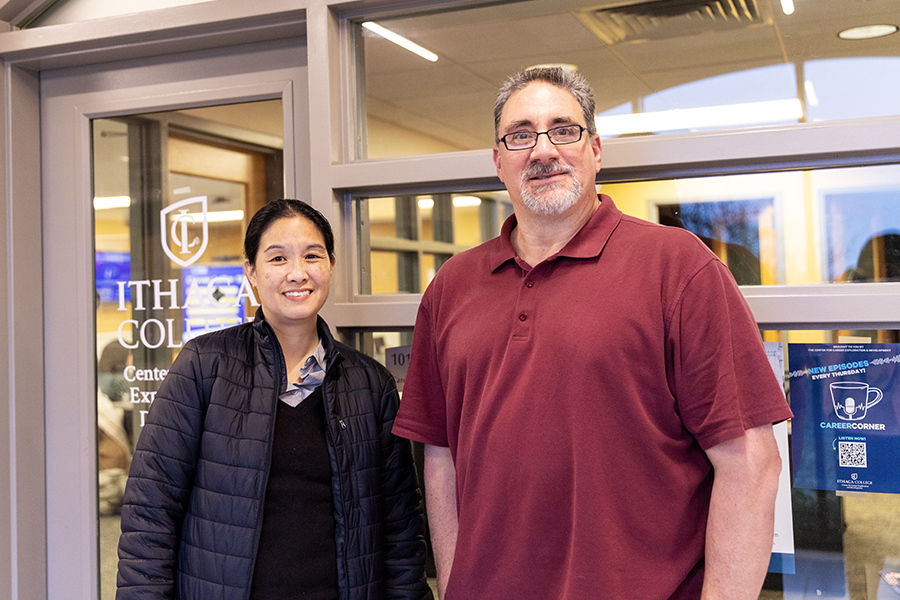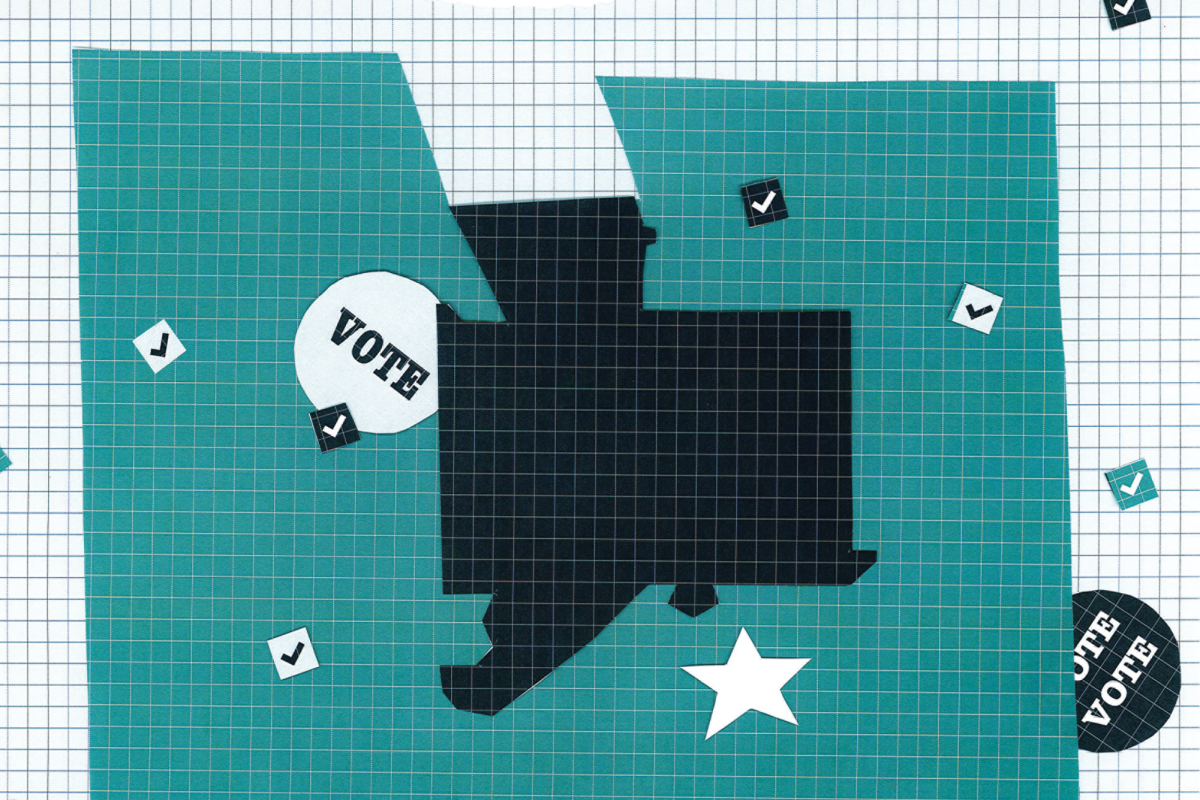Starting in January 2024, Ithaca College will begin two years of self-study, the first step in the process of being reaccredited by the Middle States Commission on Higher Education (MSCHE).
For students at any higher education institution in the U.S. to be eligible for financial aid from the federal government, the institution they want to attend must be accredited by the accreditation commission in their region and approved by the Department of Education.
Nicole Biever is the senior director for strategic partnerships and advocacy at the MSCHE. She said an institution must meet seven standards set by the MSCHE which institutions are required to encompass. The standards include having missions and goals, ethics and integrity, design and delivery of the student learning experience, support of the student experience, an educational effectiveness assessment, planning, resources, institutional improvement and governance, leadership and administration.
Biever said that once the self-study process is done, the institution submits their study to the commission who will provide feedback on how the institution can improve. Between 2024–25, the college plans to have working groups begin drafting reports of the self-study and by 2025–26, the college hopes to have the self–study completed and sent to the MSCHE in the Fall 2025 and reviewed by the commission by Spring 2026.
“They’re identifying those areas in which they can do even better,” Biever said. “It’s called the evidence expectations.”
After two years of self–study, the college will submit their results to the MSCHE, where they will be reviewed. After the results are reviewed, the MSCHE will provide feedback to the college on what is going well, and what the institution may need to work on.
Stacia Zabusky is the associate provost of Academic Affairs and the Accreditation Liaison Officer at Ithaca College. Zabusky is in charge of keeping the communication between the college and MSCHE consistent, as well as filing any paperwork that needs to be filed with the MSCHE.
She said the college has not received any severely negative feedback from MSCHE in the past, only small things that she said were addressed during the 2018–19 academic year, like receiving recommendations about making a comprehensive review of the Integrative Core Curriculum more visible to students and faculty; communicating the results of on-going assessments of all college divisions and academics better; and creating a new strategic plan.
“It’s pretty standard,” Zabusky said. “It happens to almost every institution.”
John Fracchia is the career engagement and technology specialist at the Center for Career Exploration and Development at Ithaca College. Fracchia is also the co-chair of the Middle States Self-Study and Executive Team, the committee in charge of executing the self-study. He said that although the self-study process will not begin until January, he believes the study will show the college in good standing.
“I think the college has many strengths,” Fracchia said. “I think we have great academic programs here. I think we have, from my own experience, an inquisitive and engaged student body.”
Fracchia says the reaccreditation process is a chance for the college to reflect on its success and recognize where it needs to grow. The college is able to do this by allowing campus community volunteers to become members of a working group who can let the college know about areas where it can improve in a volunteer form. This year, the form was due Dec. 4.
“It’s more than just an exercise and reaccreditation,” Fracchia said. “It’s a chance to really take a critical look at an institution.”
One thing the college will look into during its self-study is the results from the recent Campus Climate Survey. Fracchia said that it is important for the college to use data to back up its findings from the self-study, and feels that the Campus Climate Survey is the perfect opportunity to do that.
“When you’re doing research, and particularly for reaccreditation, a lot of it is data-based,” Fracchia said. “So surveying, like a campus climate study, would certainly be appropriate to look at.”
Zabusky said the survey is a key component for the college in implementing the diversity, equity and inclusion standard into the self-study report. The results of the survey will help the college understand what programs are serving the campus. At their meeting on Dec. 4, the Student Governance Council (SGC), said the survey is currently in the hands of Rankin & Associates Consulting, who the college has partnered with the college in analyzing the data. Rankin said the results will be shared sometime during the Spring 2024 semester. The participation rate of students has not yet been released, but it was confirmed at the SGC meeting that it was lower than it was in 2016, when it was at 46%.
“You’ll see that somewhere in every standard there’s our questions or regulations relating to that,” Zabusky said. “That’ll be a fundamental data point that we’ll be using in our reflection.”
Overall, Zabusky said that she is proud of where the college is now as she believes it is meeting all seven standards of the MSCHE, and that she is confident the college will once again show its strengths during the reaccreditation process.
“I think we’re being very informed by our last strategic plan as we look to develop institutional priorities,” Zabusky said. “I have every confidence that we’re doing well.”














